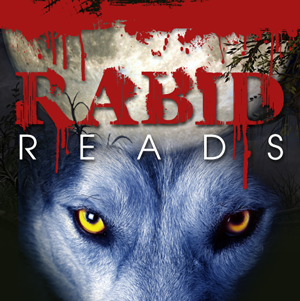Today we have a guest post from Bonds of Fenris author, S.J. Bell, here to speak about Norse mythology revolving around the story of Fenrir, the great wolf who would kill Odin, the king of the Norse pantheon. Please welcome S.J. Bell.
***
My book is called Bonds of Fenris, after the Norse myth of the wolf destined to devour the world. I often get asked if the story is about the wolf in question. The short answer is no; the title is mostly symbolic. The myth is one of my favorites, though, and has implications that are a lot deeper than many people think. Fenris, (or Fenrir, depending on how you translate it), was the son of the trickster god Loki. Once a friend of the gods, Loki had turned against them and engineered the death of Odin's son Baldur. In retribution, the gods locked Loki up. Afterwards, they became wary of Fenris, who had made his home in the woods. They consulted a prophet and received a dire warning: Fenris would kill and devour Odin, the king of the Norse pantheon. Some of the gods suggested killing Fenris, but that was impossible. The woods he lived in were sacred, and spilling blood there would be a grievous crime. Instead, they tricked the wolf into letting himself be bound with chains to test his strength. When Fenris couldn't break his chains, the gods gagged him with a sword and left him there. They knew, however, that this wouldn't change anything, because in Norse mythology destiny is absolute. And so it's said that at Ragnarok, the great battle that would end the world, Fenris would break free and take revenge on Odin for his imprisonment.
On the surface, it's your typical folk story. Big bad monster defeated by trickery. The complexity shows up when you try to figure out what exactly makes Fenris the big bad monster. When we first meet him, Fenris is just doing what a wolf does normally. Yes, I imagine the peaceful herbivores he preyed upon weren't too fond of him. But that's not his fault. It's the way of the world. All creatures consume others to survive. And Fenris doesn't seem to pose a threat to the gods. In fact, his interactions with them are quite civil up until the point that they stick a sword in his mouth. All societies create gods and demons in their own image. Or, more accurately, in the image of their worldview. In the middle ages, the myth of Fenris probably had a much different connotation than it does today. Fenris was a force of nature in a time when nature was a threat to people: the famine that brought starvation, the great storm that sunk the trading ships, the harsh winter when your neighbors froze to death. But all societies also re-invent and re-interpret the myths of their predecessors. To our parents, Dracula was a villain. But his spiritual descendents are sensitive individuals struggling with their afflictions, or embracing it in an ethical and responsible manner. Our ancestors created monsters. We took those monsters and humanize them. So when we read the story of Fenris, we ask the question that the Vikings didn't: what exactly has Fenris done that necessitates such a harsh punishment? Nothing, really. He was chained up out of fear that he would do something in the future. And so he has to stay chained to one spot, gagged and unable to eat, to wait for who knows how long. Maybe centuries. Wouldn't it be understandable for him to have a bit of a chip on his shoulder when he finally gets loose? From Fenris' perspective, he is imprisoned for no crime by a society that doesn't respect him. We have stories of such wronged people taking revenge on their enemies, and often these characters are sympathetic, or even heroic. The question must be asked: was the wolf locked up because he was wicked, or did he become wicked because he was locked up? Were the Norse gods actually creating the means of their own downfall? Fenris isn't the villain of his story; the real villain is fear. Fear which, as it always does, made people act irrationally. The gods knew that destiny could not be defied, but even knowing so they desperately tried to prevent it, and in so doing made their problem much worse than it had to be. If they had tried to find another tack, tried to understand the wolf, maybe they could have solved the problem peacefully. Maybe there wouldn't have been a problem in the first place. Things might have gone a lot better for all concerned if the gods hadn't convinced themselves right off the bat that Fenris was no good. The myth of Fenris is supposed to be a story about a monster. But maybe what it's really about is the hazards of not trusting others.




























0 comments:
Post a Comment
Thank you for visiting. :) I do appreciate any and all comments received and try to reply as soon as I can. Happy reading!